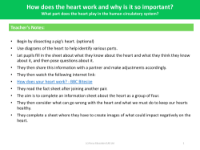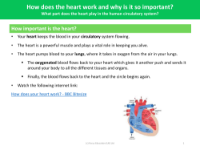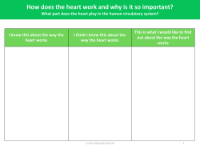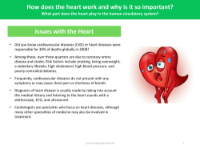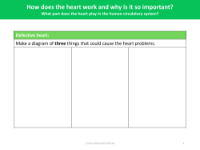What part does the heart play in the human circulatory system? - Presentation
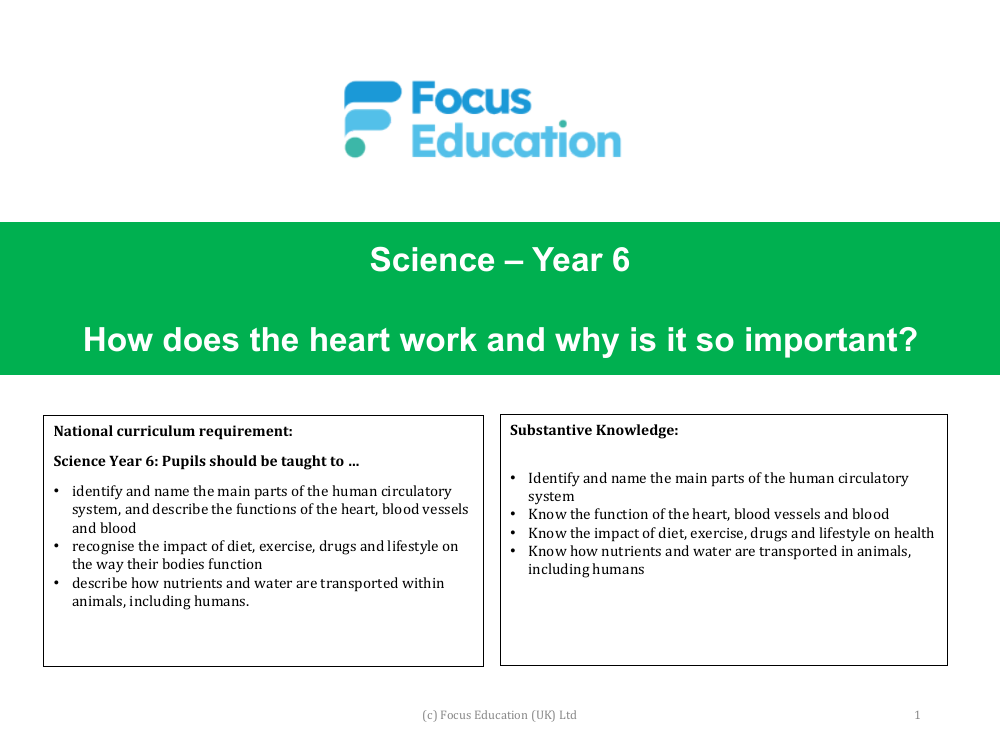
Science Resource Description
The human heart is a crucial organ in the circulatory system, performing the essential task of pumping blood throughout the body. This blood provides oxygen and nutrients to tissues and removes waste products. The heart is divided into four chambers: the atriums at the top, which receive blood, and the ventricles at the bottom, which pump blood out. The circulatory system, consisting of a network of blood vessels, relies on the heart to maintain the flow of oxygen-rich blood to all organs, enabling them to function properly. To support good circulation, activities such as regular exercise and adequate water intake are beneficial.
Cardiovascular diseases (CVD), which include conditions like coronary artery disease and stroke, were responsible for a significant portion of global deaths. Risk factors contributing to these diseases include smoking, obesity, lack of physical activity, high cholesterol, hypertension, and uncontrolled diabetes. Often, CVD may not exhibit symptoms, but when they do, chest pain or shortness of breath can occur. Diagnosis typically involves medical history assessment, listening to heart sounds, and tests like ECG and ultrasound. Cardiologists specialize in heart diseases, although treatment can involve various medical disciplines.

